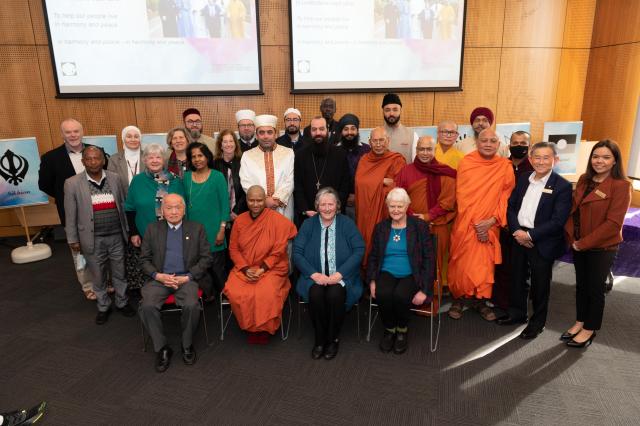A Greater Dandenong councillor has backed a multi-councillor letter calling to abolish the saying of prayers at council meetings.
Cr Rhonda Garad and 20 other Victorian councillors signed the open letter declaring that “some councilors object to being compelled … to participate in a religious ritual”.
“Freedom of religion necessarily includes freedom from religion.”
It also states that councils adopting a prayer from a single religion were excluding the “multi-faith diversity” of their communities.
Cr Garad argues that many Australians don’t follow a religion and “we should reflect this shift at council”.
“What is the actual role of prayer at a meeting? I go to a number of business meetings where we see no need for a prayer or affirmation.”
It comes as the Andrews Government is being called to fulfill an election promise to scrap the Lord’s Prayer being recited in State Parliament.
For more than 20 years, the Greater Dandenong Council has hosted a fortnightly roster of leaders of various faiths to say the prayer.
Recently, it introduced an affirmation as part of the rotation, in order to include the non-religious.
“Originally only the Christian Faith offered a prayer,” Greater Dandenong Interfaith Network executive officer Helen Heath said.
“With the tragedy of 9/11, the IFN approached CGD council about including in the roster, prayer from other faiths.”
Ms Heath said the prayer offered a “brief space for collective reflection and/or meditation before important discussions and decisions are made”.
It was also a reminder for the council of the “community’s significantly rich spiritual diversity”. She noted that Greater Dandenong was more “religious” than other municipalities, with 77.5 per cent ascribing to a religion.
Most Greater Dandenong councillors seem supportive of the status quo.
Mayor Eden Foster said councillors and officers discussed the issue last year and “together decided to continue the practice”.
“We are proud of the culturally diverse community we represent and honour their cultures, faiths and traditions.”
Cr Angela Long, who like Cr Garad is an atheist, said she appreciated the addition of affirmations to the roster.
“I wouldn’t support scrapping it because we have to be seen to be treating all faiths as equal.”
Cr Tim Dark said Cr Garad had an “obsession with trying to cancel anything to do with religion across the municipality”.
He said the prayer practice was a “source of pride” for people from each multi-faith community.







